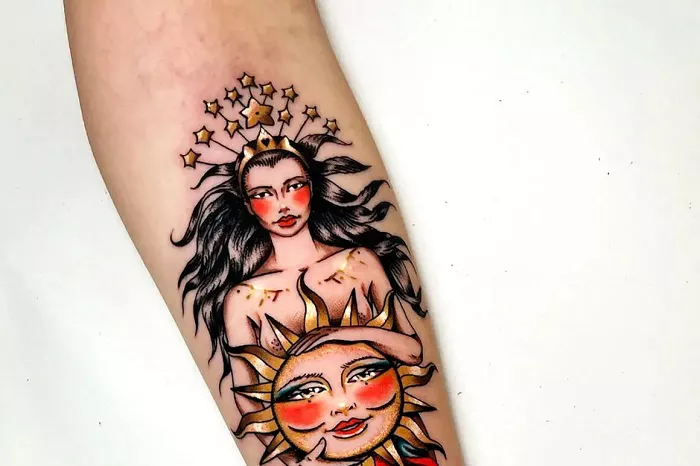With nearly one in three Americans sporting at least one tattoo, body art has become a mainstream form of self-expression. But dermatologists are warning that tattoos may come with unexpected consequences for some individuals — including chronic skin reactions that can develop years after the ink dries.
Recent studies estimate that up to 10% of people with tattoos experience itchy or painful skin issues. More concerning, about 6% report chronic symptoms lasting four months or longer. In some cases, allergic reactions may even surface years after getting a tattoo, triggered by a delayed immune response.
What’s Causing These Reactions?
Skin complications can stem from various sources, including unsanitary equipment, pre-existing skin conditions, or allergic responses to the pigments used in tattoo inks.
“There’s a distinction between a true allergy and an allergic skin reaction,” says Dr. Jamie Schlarbaum, a dermatologist at University of Utah Health. “True allergies involve the immune system, while most skin reactions are localized to the tattooed area.”
Although true allergies to tattoo ink components are relatively rare — affecting about 1 in 1,000 individuals — allergic skin reactions are far more common. One reason may be that tattoo pigments are not regulated by the Food and Drug Administration (FDA), allowing potentially reactive ingredients such as metals to remain in widespread use.
Red inks, which often contain mercury sulfide, are among the most frequent culprits in allergic responses. Additionally, long-term exposure can lead to delayed hypersensitivity, where the body reacts to ink particles years after the tattooing process.
Recognizing the Signs
According to Dr. Douglas Powell, also a dermatologist at University of Utah Health, reactions can range from mild to severe and may spread beyond the tattooed area.
“You can get a spectrum of reactions, from swelling at the injection site to a response that spreads more diffusely,” says Powell.
Common tattoo-related skin reactions include:
Localized inflammation: Temporary redness and swelling at the tattoo site.
Allergic contact dermatitis: Persistent itching, redness, and peeling.
Granulomas: Small, raised bumps forming around the ink pigment.
Photosensitivity: Inks, especially red and yellow, may react to sunlight, causing irritation.
Pseudolymphomatous reactions: Swollen nodules resulting from an immune system response.
Keloid scars: Overgrowth of scar tissue, particularly in those predisposed to keloids.
“A healthy tattoo should be flat and flush with the skin,” says Powell. “Persistent itching, inflammation, or raised areas may indicate an allergic reaction that should be evaluated by a dermatologist.”
Treatment and Management
Treatment options vary based on the severity of the reaction:
Topical corticosteroids to relieve inflammation and itching.
Oral antihistamines to address systemic allergic responses.
Steroid injections for stubborn swelling or granulomas.
Immunosuppressive therapy in chronic or severe cases.
Laser or surgical removal when other treatments are ineffective.
Experts advise against using over-the-counter creams with potential irritants. Instead, professional medical consultation is recommended to guide appropriate care.
How to Prevent Tattoo Complications
Before committing to new ink, experts recommend several precautions:
Research pigment ingredients and avoid inks with known allergens like mercury or nickel.
Request a patch test to screen for sensitivity to specific inks.
Select a reputable tattoo artist who uses high-quality, sterile equipment and FDA-approved pigments when available.
Use gentle, unscented aftercare products to reduce irritation.
Protect fresh tattoos from sunlight to prevent photosensitive reactions.
When to See a Doctor
Seek medical attention if you notice:
Redness, swelling, or pain that worsens over time.
Discharge, pus, or crusting, which may signal infection.
Persistent discomfort or itching beyond a few weeks.
Spreading rashes or systemic symptoms like fever or swollen lymph nodes.
Experts also caution that tattoo removal via laser can trigger additional immune responses as ink particles break down in the skin. Consulting a dermatologist before undergoing removal is essential.
By taking proper precautions and understanding the risks, individuals can make informed choices about tattoos while safeguarding their skin health.
Related topics:

